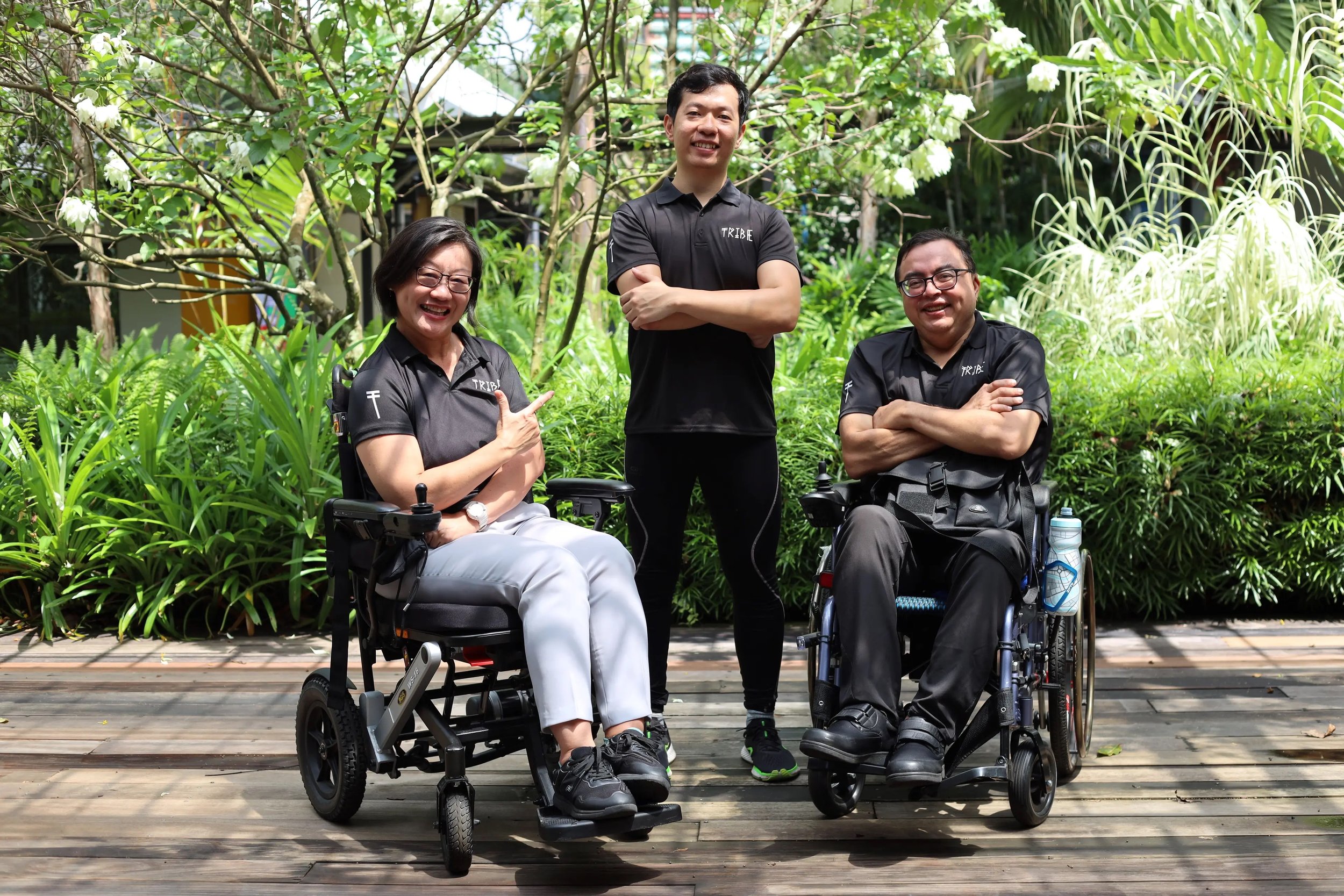
Criteria for the Meaningful Travel Map
The Tourism Cares Meaningful Travel Map is an interactive global map that showcases sustainable, authentic, and community-led organizations, products, services, accommodations, and tours that create a positive impact on local communities, the environment, and travelers. By joining the Meaningful Travel Map, you become a Tourism Cares Impact Partner, gaining the opportunity to share your story, build partnerships, and benefit from the impact of tourism. Explore the criteria below to see if your organization is a good fit.
Click here if you are a hotel or accommodation provider.
Do You Qualify for the Meaningful Travel Map?
Base Requirements:
To be included on the Meaningful Travel Map, Impact Partners must meet all five of the following requirements:
1. Your organization directly offers a product, service, or experience that is relevant to travelers and the travel trade (the network of businesses that sell and promote travel).
2. You currently work with—or are open to working with—tour operators, travel advisors, Destination Marketing Organizations (DMOs), or Destination Management Companies (DMCs) to grow your business or generate more impact.
3. You must be ready to welcome visitors or bookings, with a basic online presence (website or social media), and clear information on how to visit, book, or engage.
4. You are a small businesses, emerging initiative, non-profit and/or community-based organization that goes beyond the mainstream tourism model to create meaningful impact.
Please note, large or well-established companies with basic Corporate Social Responsibility (CSR) programs are less likely to qualify, especially if they’re already well-connected to the travel trade.
5. Your work proactively contributes to community benefit, environmental responsibility, and/or cultural preservation, without causing harm to people, animals, or the environment (Click here to review Tourism Cares’ child safety and animal welfare policies).
-
Your organization is:
Registered non-profit, social enterprise, community-owned business, or cooperative;
Women-owned; or
Certified B Corp
-
Your organization is:
Owned/operated by and/or directly beneficial to historically excluded communities (Black, Indigenous, ethnic minority, people of color, LGBTQIA+, people living with disabilities); or
Creates local jobs or reinvests in the community, specifically in areas that currently lack significant economic impact from tourism
-
Your organization:
Significantly and actively minimizes or offsets environmental harm through efforts like reducing waste, water use, or emissions; and
Goes beyond minimization by actively restoring or protecting ecosystems, biodiversity, or natural resources; and
Has a sustainability policy, sustainability training for staff, and sustainability communications for guests
-
Your organization:
Offers immersive, place-based experiences that connect travelers with local knowledge;
Actively preserves, protects, or enhances cultural heritage and/or local traditions;
Inspires behavior change toward more responsible travel; or
Communicates values of sustainability or social impact through storytelling and interpretation
Your organization must meet two or more of the following Impact Areas as part of your core mission, business model, and/or public messaging:
Additional Requirements
*Learn more about the Meaningful Travel Fund here.
Examples of Impact Partners
While not an exhaustive list, the following examples help demonstrate the range of organizations that qualify for the Meaningful Travel Map.
-
Community-based tourism initiatives
Indigenous-owned or -led hospitality businesses
Artisan cooperatives and craft collectives offering visitor experiences
Culinary and food traditions programs rooted in place or identity
Cultural centers or heritage museums offering educational experiences
-
Regenerative farms with guest activities or stays
Nature preserves, sanctuaries, and rewilding projects that welcome visitors
Wildlife rehabilitation centers or conservation organizations with tours
Eco-lodges or nature-based accommodations with minimal footprint
Organizations practicing or teaching permaculture or agroforestry
-
Social enterprises that use tourism to support a broader social mission
Businesses owned by or empowering historically excluded groups
Companies offering job training, education, or equity-focused hiring through tourism
Nonprofits or NGOs with a tourism-facing program or product
-
Adventure or eco-tour operators with a commitment to responsible practices
Walking tours or storytelling-based experiences centered on local narratives
Tour companies specializing in heritage, ecology, or community impact
-
Restaurants or food businesses committed to ethical sourcing, food justice, or zero-waste practices
Breweries, distilleries, or wineries with sustainability certifications or social missions
Agritourism operations offering farm stays, tastings, or educational programs
Culinary tours focused on traditional, local, or Indigenous foodways
-
Environmental education centers or science-focused tourism programs
Interpretive programs that foster place-based learning and sustainability awareness
Hands-on workshops for travelers on traditional skills, conservation, or local knowledge
Theater, performance, or storytelling groups that engage visitors in cultural reflection
-
DMCs (Destination Management Companies) and Tour Operators who:
Center community benefit and sustainability, and
Can bring at least three of their local suppliers onto the Map
DMOs who:
Are focused using travel as a force for good in your community
Will join as official members of Tourism Cares to help unite the travel industry around positive social, environmental, and economic impact for the people and places of travel.
Nature & Conservation:
Dundreggan Rewilding Centre, Inverness, Scotland
Cultural Preservation:
Alaska Native Heritage Center, Anchorage, Alaska
Tours & Guiding Services:
Ludus Lab, Singapore
To be included on the Meaningful Travel Map, accommodation providers must meet the following criteria:
Criteria for Hotels + Accommodation Providers
Demonstrated Impact: Meet one of the above Additional Requirements as a core part of your mission, operations, and communications (i.e. Governance/Business Model; or Social/Cultural/Community; or Educational/Awareness-Building), in addition to the Environmental requirements outlined below.
Local Ownership + Size: We prioritize locally or regionally owned accommodations, especially those with fewer than approximately 50 employees. Larger properties, or those part of a small group or small chain of hotels, may be considered if their impact efforts are truly exceptional (beyond typical Corporate Social Responsibility programs) and well-documented. We only list individual properties, as opposed to hotel groups or chains.
Environment: You have a sustainability plan that contains:
Clear goals, and some demonstrated impacts, for significantly and actively minimizing or offsetting environmental harm through efforts like reducing waste, water use, or emissions
Clear goals, and some demonstrated impacts, for actively restoring or protecting ecosystems, biodiversity, or natural resources (ie. going beyond just minimizing harm)
Note: Larger businesses require a written plan and systems for tracking, measuring, and reporting on local impact.
Staff Engagement + Training: Staff are actively involved in implementing sustainability practices and are:
Regularly trained on your sustainability initiatives
Educated about the natural and cultural heritage of the local area
Encouraged—or required—to share responsible tourism practices with guests
Tourism Cares reserves the right to approve or deny any submitted Meaningful Map pins. For instance, an organization that otherwise qualifies but receives significant negative feedback from the community or creates environmental degradation is likely to be disqualified. If there are questions regarding your pin entries, our team will be in touch to gather more needed information.
SPOTLIGHT: THE PEOPLE + PLACES OF TOURISM CARES
Mt Rainier National Park | Tourism Cares for our National Parks 2016
Volunteers from all over the United States met in Mt Rainier National Park during the centennial year to contribute to a number of conservation projects including invasive removal, tree planting and trail building. Our National Parks, largely understaffed, depend on volunteer to support to maintain the natural beauty and keep up with constant preservation efforts.









